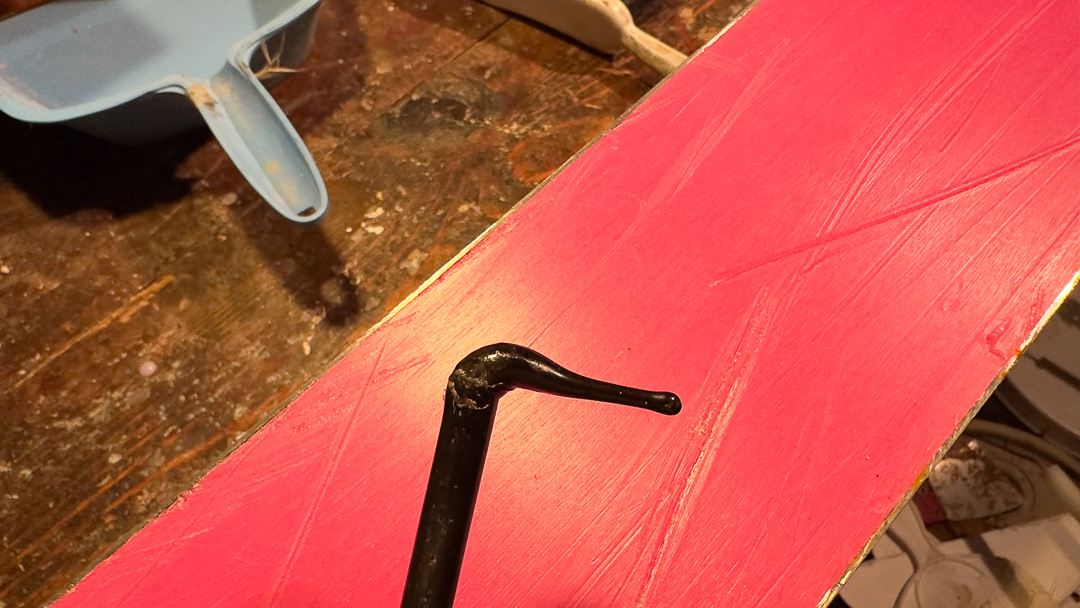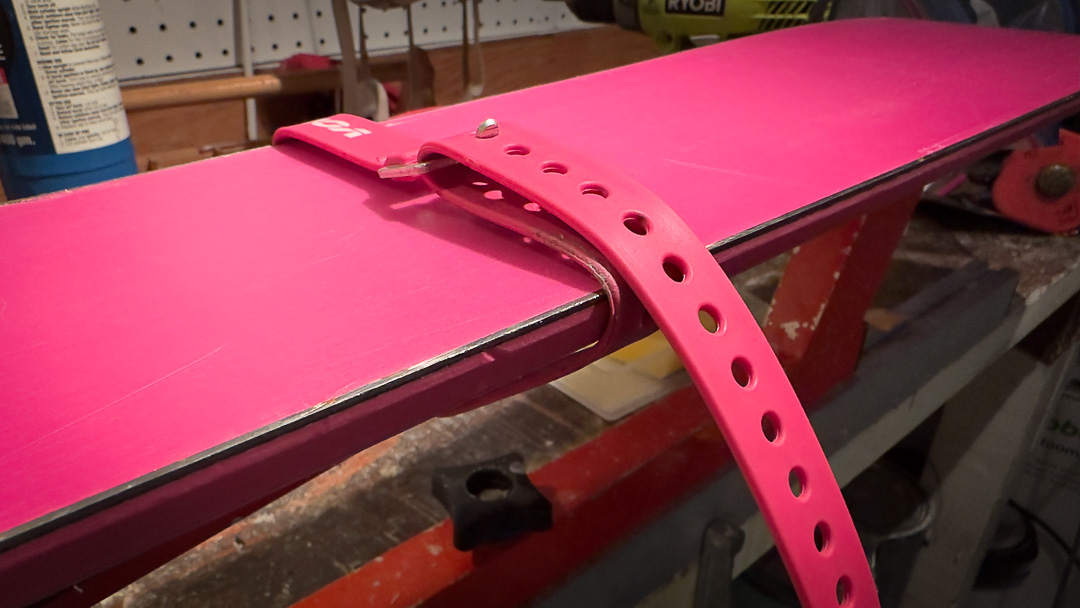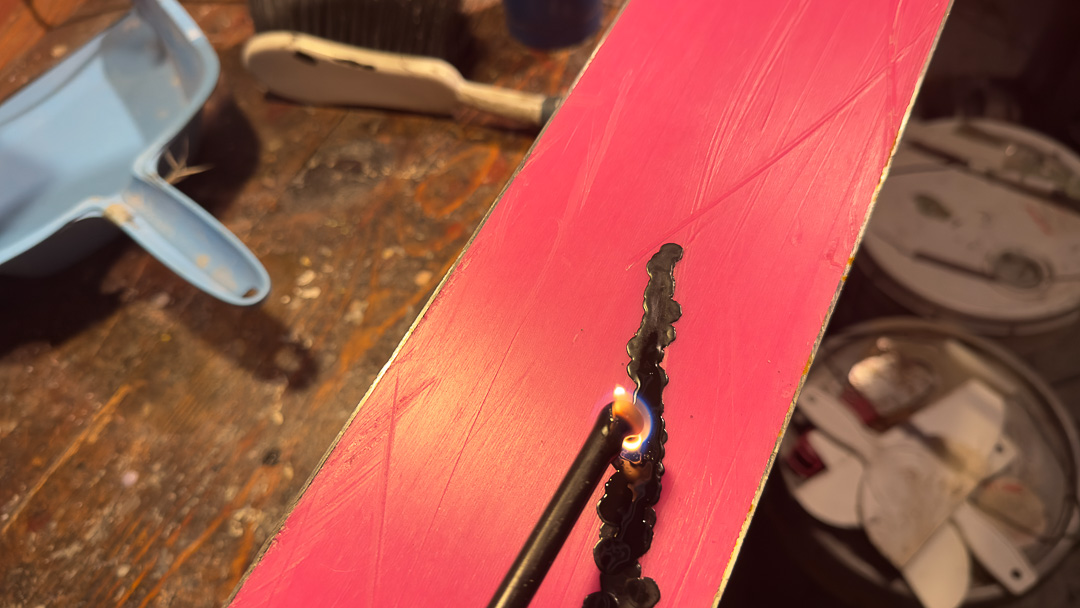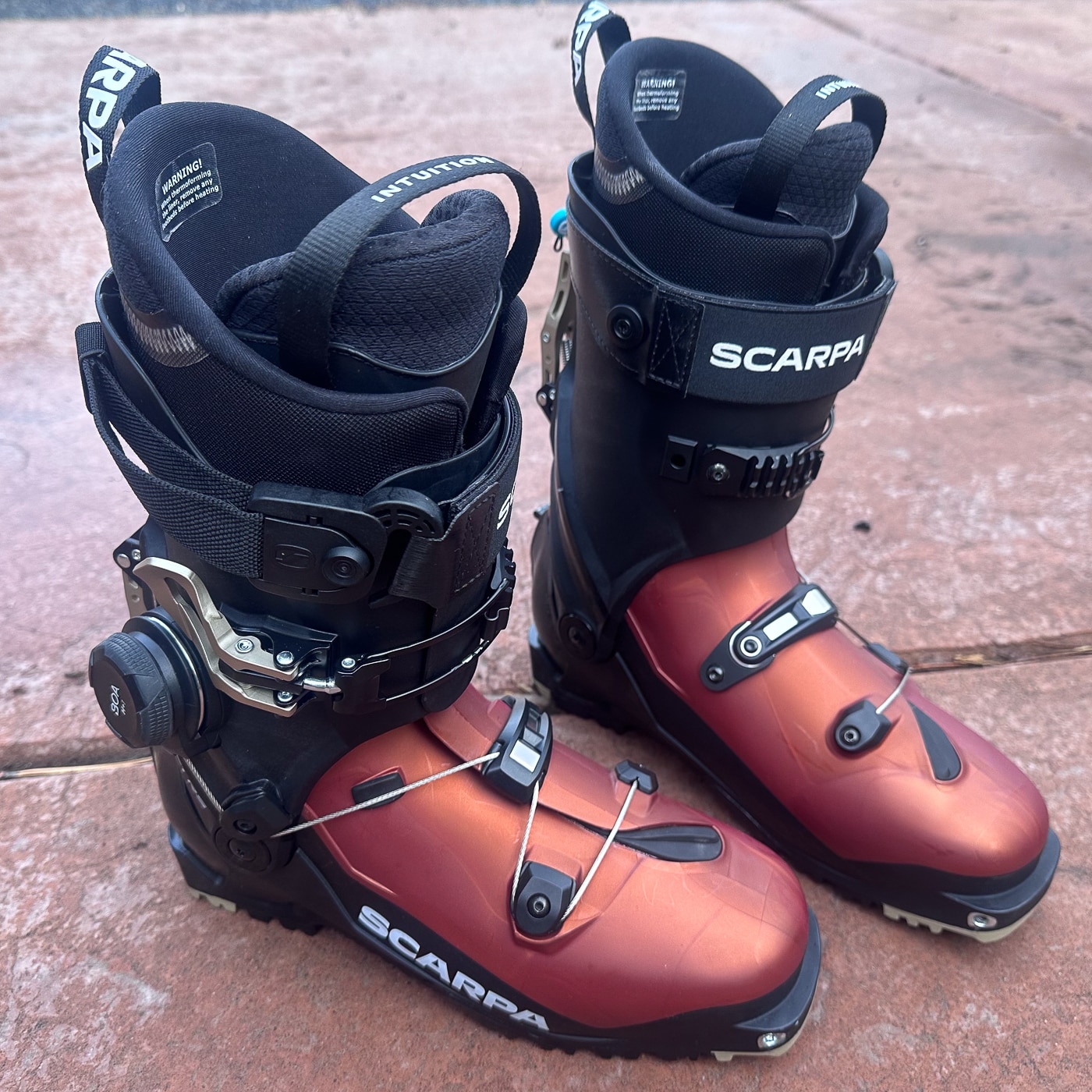P-tex is short for polyethylene, a common plastic. Ski bases are made specifically from UHMWPE. Think long-chain plastic. For ski base applications, it’s relatively durable with a low coefficient of friction. Both are excellent attributes for snow sliding and allow skis to take a beating.
In the battle for hardness and durability, rocks beat UHMWPE. Glide over a rock or five, and that once unblemished ski base sports a patina that says “I get after it” and cannot be bothered with superficialities like ski base appearance. Sure, a patina of ski base grooves here and there isn’t a big deal. But when deep hits look like they may compromise a base or are close to an edge, P-tex, which costs a few dollars/stick, is a cost-effective base repair solution.
Use P-tex to repair the base for base gouges of ~0.5mm or less. If a ski’s core material is exposed, we suggest a different base repair solution that involves metal-grip (an epoxy P-tex combo). Eyeball the ding before you spark a stick of P-tex: those dings less than 0.5mm are likely cosmetic.
We used a well loved pink-based Black Crows Corvus Freebird for the P-tex repair demo. Be warned, if you are overly concerned with pairing ski base color with P-tex color, be warned, you may be offended. We used black P-tex on the pink base. The ding was over 0.5mm deep, and just on the threshold of requiring a more substantial base repair.


Materials for P-tex Repair
- Lighter or plumber’s torch to light P-tex
- Plastic or metal scraper
- Small sharp blade/exacto knife
- Base cleaner
Steps for Repairing with P-tex
Preparing the Ding
—Secure the ski on a flat surface. If you have ski vises, lock the skis in. If not, construct a makeshift but functional ski bench using 2×4 scraps and old bike tire tubes.
—Clean the affected area on the base (if not the entire ski base) with base cleaner. It’s easy; wipe some cleaner on the ding to remove any dirt/grit.
—Brush out the base/affected area with a wax brush.
—Ideally, we want a clean ding, free of strands/hairs of base material. The base is plastic, so use the blade/exacto knife to cut and remove excess material. All this ensures a better bonding surface between the ding and fresh P-tex.





